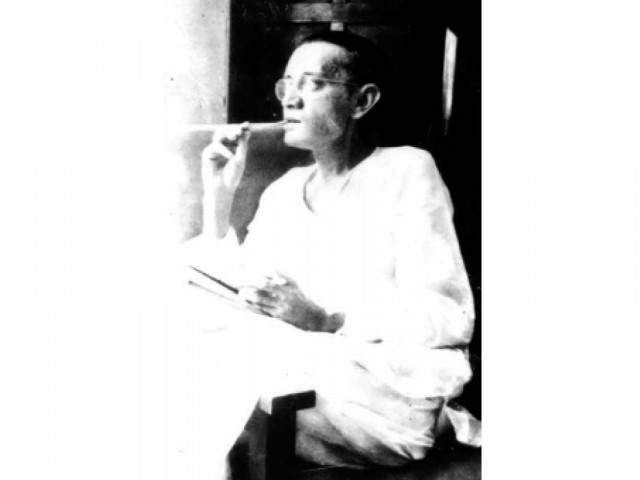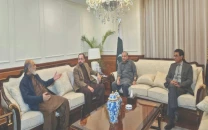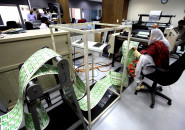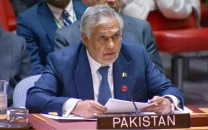‘Manto was a political animal, not just a realist short-story writer’
Downplaying of Manto’s political activism discussed; artists display female form as Manto did.

‘Manto was a political animal, not just a realist short-story writer’
The rewriting of history to make revered figures more acceptable to the rightwing was a focal point during a lecture titled ‘The Unbearable Manto: Prophet, Pariah or Pervert’. The lecture, held at Nomad Art Gallery on Saturday, was delivered by Raza Naeem, a social scientist and literary critic.
Naeem lamented that Manto has been reduced to just a short story writer by critics, the government and the public alike. He compared the treatment of the late writer with other literary figures of the country such as Allama Iqbal and Ghalib, who were widely appreciated in their time instead of being ridiculed like Manto. “Within literary circles and in the public perception, we see Manto as a realist on sex and partition. The facts that he was an admirer and sympathiser of the Russian revolution and had a socialist sensibility are conveniently side-stepped,” said Naeem.
Naeem posited that the fault of this narrow perception of Manto’s work is primarily the fault of literary critics in the past and present. For instance, Manto’s expulsion from the Progressive Writers Association showcases the shallow meaning attached to the word progressive. “Inherently, all human beings are progressive, but Manto’s progressive thought is unmatched and unfaltering. He was the first to address the twin cancers of the new Pakistan – Uncle Sam and the extremist. But still, his important ‘Letters to Uncle Sam’ are not revered in the country,” said Naeem.
He also noted that Manto’s predictive powers were very apt when he wrote about the unshakable hold of the United States on Pakistan as well as the detrimental alliance with Saudi Arabia.
Praising the role of women in Manto’s works, Naeem said, “Manto possessed an unquestionable solidarity with the underdog, humanity was always a winner in his work.”
“Driven to the brink of alcoholism, Manto died a broken man. It is our responsibility to remember him as he was, not what is convenient to believe. He was a political animal, not just a realist short-story writer,” commented Naeem.
Art exhibit
Nomad was also hosting an art exhibition. Though there was no direct connection between the lecture and the exhibition, but since many of Manto’s short stories were based on powerful female characters, the female artists and their subject matter resounded with each other.
The work of Samina Ali, Shireen Ikram and Salma Manzoor was showcased and will continue to be exhibited till November 24.
Nageen Hayat, Nomad’s curator, noted Manto’s uniqueness as a writer and how he drew example from female characters in society who display strength and power despite being marginalised.
The artists themselves took inspiration from the female form.
Salma Mansoor explained her affinity, saying, “The female figure has always been in the limelight in the work of artists and authors. The changes that come about in the behaviour of women due to their unequal socioeconomic status in society are my main concern.”
On the other hand, Ikram paints intuitively, leaving the environment around her as stimulus. From her work it can be seen that she thrives on using primary colours to expound on the simplicity and beauty of nature.
Published in The Express Tribune, November 18th, 2012.



















COMMENTS
Comments are moderated and generally will be posted if they are on-topic and not abusive.
For more information, please see our Comments FAQ